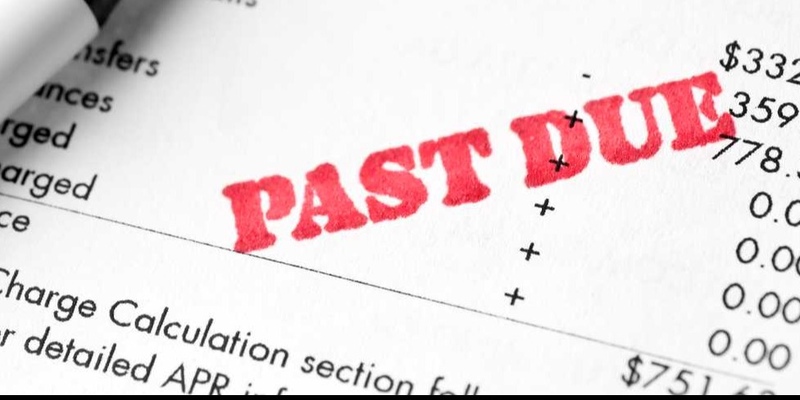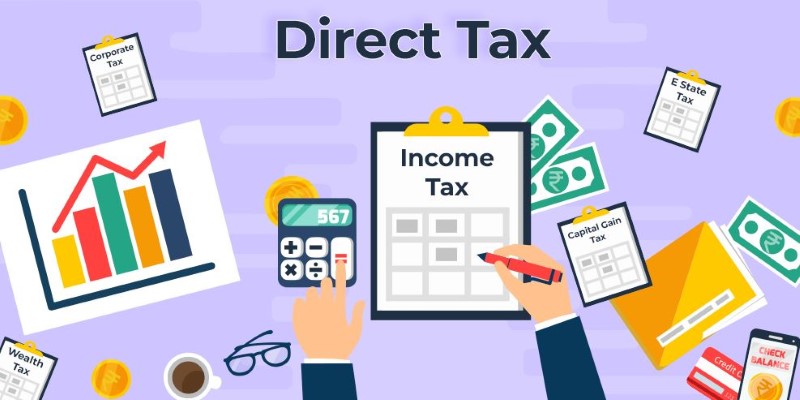Everything You Should Know About Direct Tax?
Oct 22, 2024 By Rick Novak
The world of accounts and finance is vast and full of terms which are quite difficult o understand. However, while people who work within this domain do have an idea of the terms related to this work force, people outside of this sector do not need to know all the terms related to it, a few should be understood in order to lead a life. One such term is 'Direct Taxation.'
Direct taxation, or direct taxes, refers to the specific amounts many individuals pay to the government as a form of fee. If you are unfamiliar with direct taxation and want to know more, this article has you covered.
What are Direct Taxes?
Direct taxes are the type of taxes that an individual has to pay directly to the government. These taxes usually include income tax, poll tax, land tax, and personal property tax.
All these direct taxes are computed based on a person's ability to pay. This means that if a taxpayer has a high-income source or a higher capability to pay taxes, their tax margin would also be higher.
Direct taxes are computed as a percentage of total income. Additionally, these direct taxes are the responsibility of every individual who has the means to pay for them and cannot be paid by anyone other than them.
Types of Direct Taxes
Multiple different types of taxes exist. While everyone has to pay taxes, not everyone can understand each type of tax. Hence, to make it easier for you, we have defined different types of taxes in simpler words below:
Income Tax

Income tax is based on an individual's income. A specific percentage from an individual's salary is deducted for this tax to be paid. This percentage depends on the amount the person earns and hence will vary from one individual to another.
Transfer Taxes
One of the most common transfer taxes is the estate tax. This type of tax is levied on the taxable portion of any deceased individual's property, including their trusts and financial accounts. The gift tax is another form in which a certain amount is taken from people who are transferring their property to another individual.
Entitlement Tax
The entitlement tax is the means that gives users the benefits of enjoying social programs like Medicare, Medicaid, and Social Security. These entitlement taxes are collected during payroll deductions from working people and then collectively grouped in the Federal Insurance Contributions Act.
Property Tax

The concept of property tax might be very easy to understand for everyone. This is because the name itself gives most of the information needed. However, we will still give you a brief overview of this whole aspect.
Property taxes are charged on properties like lands and buildings and are used to maintain public services like the police and fire department, public libraries, roads and pavements, and even schools.
Capital Gains Tax
Capital gain tax is charged to individuals when they sell their assets, such as real estate, stocks, and businesses. This tax is computed after determining both the asset's acquisition and selling amounts. Once done, the seller must pay a certain amount in Capital Gains Tax. This amount can vary greatly depending on the asset being sold and, hence, will vary in different case scenarios.
Advantages of Direct Taxes
Now that you know the different tax types, it is time to dive into the advantages these taxes can provide. While many people do not like to pay taxes because they feel their money is only going out of their accounts, this is certainly not true. In fact, taxes bring out many excellent benefits, which you can read about below:
Promotes Equality
Direct taxes are based on an individual's pay, creating a sense of equality between payers and citizens. This is because every individual has to pay based on the amount they earn rather than everyone paying the same amount in taxes.
Promotes Certainty
The best part about direct taxes is that the individual is confident about the amount they have to pay, and it doesn't come off as a surprise to many. These taxes are determined and finalized before an individual has to pay them, and in many cases, taxes like income tax remain the same year after year as long as the individual's salary doesn't change.
Promotes Elasticity
Taxes go to the government, and hence, you can easily say that they are the government's earnings. Hence, when taxes fluctuate, the earnings of individuals also change and can go higher or lower.
Saves Time and Money
The government is not responsible for collecting taxes as they are already collected at the source of the individual's income. This means the set-up where an individual works already deducts the amount of income tax before the person receives their salary. Many companies also use the automatic pay role deduction system, which helps save a lot of time and money.
What is the Difference Between Direct Tax and Indirect Tax?
Direct taxes are taxes that an individual is responsible for paying. They cannot be shifted to another party and should be spent alone. Indirect taxes, on the other hand, are the exact opposite, and whoever is liable to pay them can shift them to another person or group. Moreover, direct taxes are imposed on people who belong to a certain income bracket only, while indirect taxes are felt by everyone who buys or avails services.
Wrapping Up!
If you want to learn about direct taxes and their types, we hope this article provides you with the best and most crucial information. If you want to add anything else, let us know.
On this page
What are Direct Taxes? Types of Direct Taxes Income Tax Transfer Taxes Entitlement Tax Property Tax Capital Gains Tax Advantages of Direct Taxes Promotes Equality Promotes Certainty Promotes Elasticity Saves Time and Money What is the Difference Between Direct Tax and Indirect Tax? Wrapping Up!
What Is Total Shareholder Return (TSR)?

Companies Owned by Disney

Ways to Live Frugally in Retirement

Lifespan of An Appraisal

Debt Restructuring vs. Debt Refinancing

Renters Insurance Explained: Are Your Storage Units Protected?

All You Should Know About Debt Related Statute of Limitations

Understanding Whole Life and Universal Life Insurance: Which Is Right for You?

How to Prevent Foreclosure and Keep Your Home Secure

Exploring the Common Ways to Move Expense Claims for Returning to School

Navigating Escrow Challenges in Real Estate Transactions
